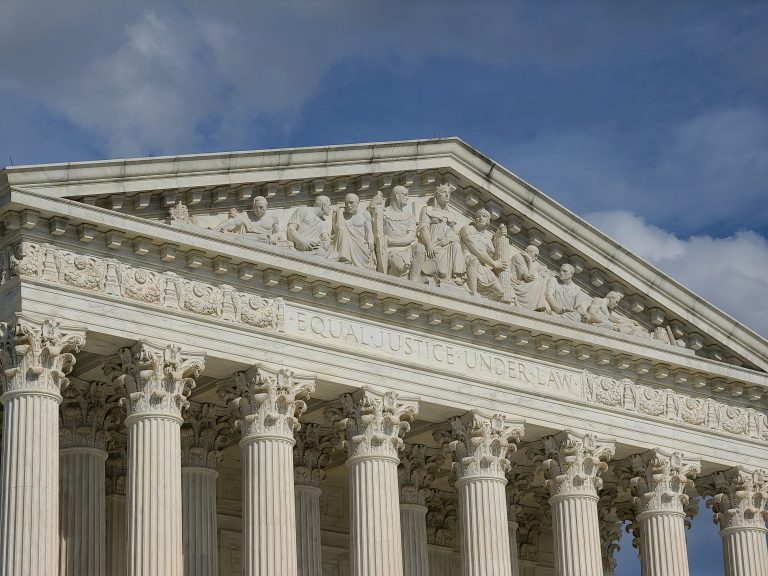It’s understandable that gun-rights advocates are disappointed by the Supreme Court’s recent decision not to get involved in two cases against New York’s latest gun restrictions, but they shouldn’t be surprised or particularly concerned by it.
On Thursday, the Court declined to issue an emergency order sidestepping the Second Circuit and put a stay on enforcement of New York’s new gun dealer security requirements and ammunition background check system. Plaintiffs in Gazzola v. Hochul argued the law’s implementation could cause them to shutter their businesses, and they asked the justices to block it while their case makes its way through the legal process. So, when the Court decided not to act, the plaintiffs were understandably dismayed.
“We are disappointed that not one of the nine justices saw fit to grant the plaintiffs some stay of enforcement of the new laws against them,” Paloma Capanna, a lawyer for the plaintiffs, told Fox News Digital. “We are challenging the ability of the state of New York to target dealers in firearms in the lawful stream of commerce, to put them out of business, which is what the new laws will do. So it really was unfortunate to see that we couldn’t get any emergency temporary injunction against those laws.”
That came just over a week after the Court decided not to intervene in Antonyuk v. Nigrelli, which challenges New York’s expansive post-Bruen gun-carry restrictions. In that case, plaintiffs wanted the Court to lift a Second Circuit stay against a district judge’s ruling that the restrictions are unconstitutional. But the Court didn’t do that either.
It’s easy to see why this might cause consternation among gun owners, especially in the wake of the Supreme Court issuing the landmark Second Amendment ruling in New York State Rifle and Pistol Association v. Bruen just six months ago. And New York’s Bruen response law was passed to rebuke that very ruling. Most of the controversial provisions appear plainly unconstitutional under the standard set in Bruen, as several lower court judges have already found.
The cases against many of the provisions look like they may be slam dunks. At the very least, they seem to justify delaying enforcement of the law while the legal fight is worked out.
However, that’s not usually how the Supreme Court operates. Even beyond the Second Amendment, the Court often doesn’t follow up landmark rulings with further intervention on the topic. At least not right away.
As Cam Edwards at Bearing Arms notes, even in some of the most famous rulings in Supreme Court history, it took a few years for the issue to get fully sorted out. He pointed to 1954’s Brown v. Board of Education as an example. For years after the Supreme Court ruled racial segregation in schools was unconstitutional, there were holdouts at the local level.
Prince Edward County, Virginia, kept its schools segregated for six years after the case was decided. Then it shuttered its public schools altogether rather than integrate for four years after that. The Court did not intervene in the legal case against the district during that decade.
The Court generally wants lower courts to develop a full record in a follow-up case that attempts to interpret its new standard of review before it weighs in. In fact, given they can only take so many cases each session, the Court usually likes to wait for a significant disagreement on how to apply a standard occurs between the appeals courts before it intervenes.
So, the delay isn’t out of the ordinary. And it also doesn’t provide much evidence the Court won’t eventually step in to strike down New York’s law.
In 1964, the Court took up a case against Prince Edward County’s segregation policies, ruling 7-2 against the county. The delayed intervention was clearly not because the Court felt sympathy toward local officials’ legal arguments.
Of course, the decade that elapsed between the landmark Heller and MacDonald decisions and Bruen is another Second-Amendment-specific example of a delay not foreshadowing a change of position. Bruen expanded on the Court’s reading of gun-rights protections rather than reversing them.
There are good reasons to think the same could happen with New York’s gun restrictions and that the Court may not wait nearly as long to get involved. Namely, Justices Samuel Alito and Clarence Thomas explicitly said the Court decided not to jump into Antonyuk out of deference to the Second Circuit’s process for considering cases.
“I understand the Court’s denial today to reflect respect for the Second Circuit’s procedures in managing its own docket, rather than expressing any view on the merits of the case,” Alito wrote.
They went a step further and called the lower court ruling that found New York’s gun-carry restrictions unconstitutional “thorough” and warned the Second Circuit to explain why it placed a stay on that ruling sooner rather than later.
“With one exception, the Second Circuit issued a stay of the injunction in full, and in doing so did not provide any explanation for its ruling,” Alito wrote. “In parallel cases presenting related issues, the Second Circuit has likewise issued unreasoned summary stay orders, but in those cases it has ordered expedited briefing.”
He also noted the law raises important legal questions that haven’t been fully examined.
“The New York law at issue in this application presents novel and serious questions under both the First and the Second Amendments,” Alito wrote. “The District Court found, in a thorough opinion, that the applicants were likely to succeed on a number of their claims, and it issued a preliminary injunction as to twelve provisions of the challenged law.”
Alito even encouraged the plaintiffs to ask the Court to intervene again if the Second Circuit doesn’t move quickly enough.
So, while the Court isn’t moving as fast as gun-rights advocates might want, it isn’t doing anything out of the ordinary. And there’s reason to think the Court might not only move on these cases faster than normal but that it is leaning against the gun restrictions.






